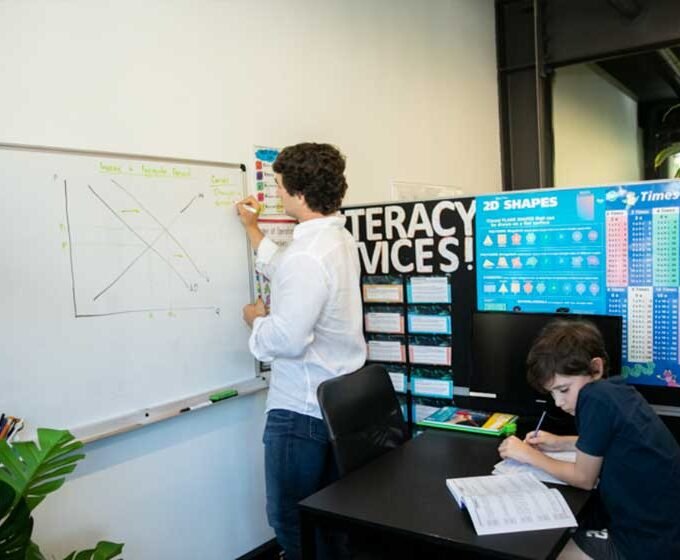Among the most intimidating aspects of the job search is going on an interview for a new position. You put on your boldest and most confident front for each recruiter, spend hours researching potential employers, and prepare answers to the same ten questions. Making a good and lasting impression is your only objective.
However, more than practising and being prepared for what to say in job interviews is essential. To get hired, you must honestly describe why you are the ideal candidate for the position, highlighting your values and character traits and showing how these complement the team’s or organisation’s overall goals. By taking the interviewer on that trip, you differentiate yourself from the competitors and allow them to connect with you personally.
Preparation is Key:
The key to confident and articulate responses lies in thorough preparation. Before the interview:
- Research the company’s goals, core principles, offerings, and most recent news. This information lets you respond more precisely because it shows you are genuinely interested.
- Examine the job description: Determine the essential knowledge and abilities listed in the job description. Provide concrete instances from your experience demonstrating your ability to fulfil those needs.
- Practice Frequently Asked Questions: Do homework and rehearse your answers to frequently asked interview questions. This aids in the formulation of precise, concise, and organised responses. Use the STAR approach (Situation, Task, Action, Result) to communicate your experiences effectively.
- Prepare Your Own Questions: Well-thought-out questions for the interviewer demonstrate your curiosity and initiative—craft questions about the role’s company culture, team dynamics, or future growth opportunities.
Mastering Common Questions About What to Say in Job Interviews:
Here are some strategies for tackling common interview questions:
- Tell Me About Yourself: Avoid a generic life story. Instead, craft a concise narrative that highlights your required skills and experiences and connects them to the job you’re applying for.
- Why Do You Want This Job?: Express your genuine interest in the specific role and company. Elaborate your understanding of the company’s mission and how your skills and dreams align with their needs.
- Describe a Time You Faced a Challenge: Focus on a specific situation where you encountered a problem. Use the STAR method to explain the situation, the task at hand, your actions, and the positive outcome. This showcases your problem-solving tactics and ability to overcome obstacles.
- What Are Your Strengths and Weaknesses?: Be honest about your weaknesses, but focus on framing them as opportunities for growth. For strengths, highlight qualities relevant to the position and provide concrete examples.
- Do You Have Any Questions for Us?: Always come prepared with well-thought-out questions. This demonstrates your genuine interest in the role and the company.
- What kind of workplace do you like best?: Even if you may enjoy working independently, your response won’t help you if the position you’re looking for is in a call centre. Thus, take a step back and consider the position for which you are applying as well as the culture of the organisation (as all companies have a culture, whether deliberate or not). If you value flexibility in your schedule but the company doesn’t provide it, find another hobby. Choose another hobby if you prefer consistent guidance and assistance, and the organisation expects its workers to be self-sufficient. Look for ways to demonstrate how the workplace culture will benefit you; if you cannot do so, decline the offer of employment as you will be unhappy.
- For What Reason Do Recruiters Ask? “What Did You Enjoy Most About Your Job?”: This inquiry, however it may appear straightforward, goes beyond small talk. Recruiters can learn important information from it about three main areas:
- Evaluating Your Motivation and Fit: Your response highlights your interests, work ethic, and desired career path. Referring to elements that are important to the role indicates a good fit. Emphasising demanding or satisfying employment demonstrates a proactive and driven applicant.
- Recognising Your Experiences and Skills: In your response, you can highlight your enthusiasm for learning and development and the skills you like to use. You can identify things that make the new role unacceptable by discussing your dislikes.
- Developing a rapport and a conversation: By answering honestly, you allow the interviewer to talk about your accomplishments and prior experiences, which tells them more about you. Sharing something you love makes people happy and allows you to show off your individuality.
You can significantly influence the result of your interview by composing a well-thought-out response that emphasises these points.
Additional Tips
- Be sincere and honest. Never try to fake happiness or abilities you don’t possess. Please pay attention to the aspects of your last job you genuinely like and how they apply to this current role.
- Remain focused and concise in your response. At most, give it a minute or two.
- Prepare your response in advance. This will make you appear more assured and articulate during the interview.
In summary:
By paying close attention to these pointers and getting plenty of practice, you can feel secure and prepared for your next interview. Recall that this is a two-way conversation. In addition to leaving a positive impression, use this chance to determine whether the role and company culture align well with your professional objectives and skill set.
Now, inhale deeply, show off your enthusiasm, and let your outstanding answers open the door to your next professional achievement!
















